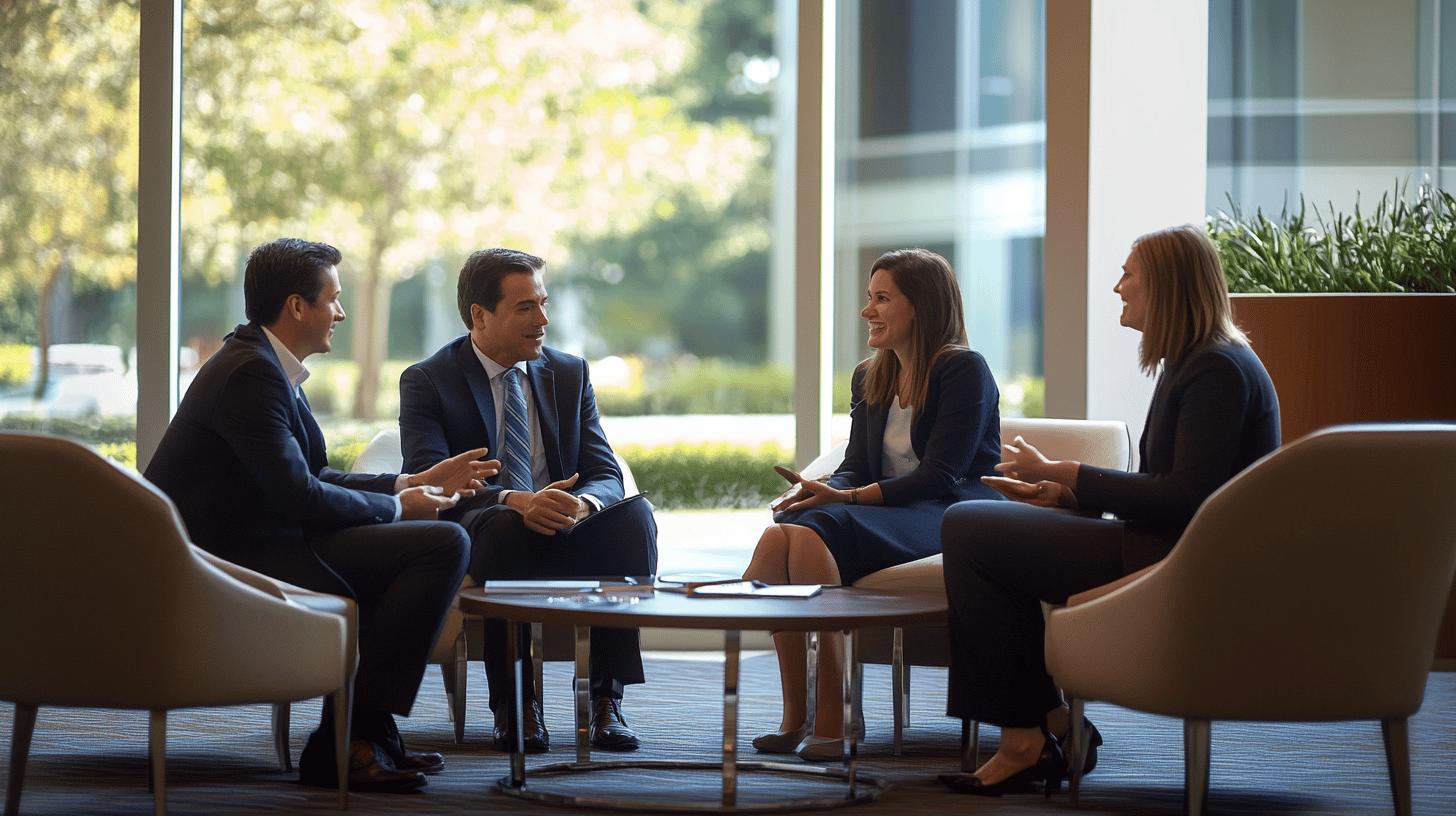Community religion and faith play a pivotal role in shaping American society, weaving a tapestry of shared values, beliefs, and practices that bind people together. Historically, organized religion in the United States has acted as a crucial pillar, enhancing social capital and community cohesion, according to Robert Putnam's insightful research. Yet, the American religious landscape today is in flux, with the Pew Research Center noting that a substantial 62% identify as Christian while 29% remain unaffiliated, reflecting a shift towards diversity and evolving faith practices. These numbers highlight the transformative power of religious communities that continue to offer personal meaning and social structure across the nation.
Within this dynamic framework, various communities across America emphasize religion not only as a personal compass but also as a foundation for social organization and cultural identity. As you delve into the intricate world of community religion and faith in America, you'll uncover how these elements contribute to a richer, more interconnected society. Understanding these facets will set the stage for a deeper exploration of the challenges and opportunities facing faith communities, ultimately inviting readers to reflect on their own roles within this evolving landscape.

Organized religion has played a crucial role in shaping social capital and fostering community cohesion in America. Robert Putnam’s research highlights how religious institutions have historically acted as central hubs for building trust and facilitating social networks. These institutions provide a space where individuals find belonging, shared values, and mutual support, strengthening the fabric of local communities across the nation. The American religious landscape remains diverse, with the Pew Research Center reporting that 62% of Americans identify as Christian, while 29% claim no religious affiliation. Different communities emphasize religious beliefs in varied ways, often as a source of personal meaning and social structure. This diversity reflects the evolving nature of faith’s role in people’s lives, bridging tradition with contemporary values. Key data points on community religion and faith in America include:

America’s religious landscape is a vibrant mosaic shaped by diverse faith traditions. While Christianity remains the majority faith, significant populations practice Judaism, Islam, Buddhism, Hinduism, and other religions, each contributing unique cultural and spiritual values. This diversity enriches communities, fostering mutual respect and broadening perspectives within neighborhoods and cities. Multicultural faith practices continue to evolve, blending traditional rituals with contemporary expressions of spirituality. These practices influence community values by emphasizing inclusivity, compassion, and social responsibility. Many communities celebrate religious festivals, engage in interfaith dialogues, and participate in shared service projects that bridge cultural and faith divides, creating a stronger social fabric. The following examples highlight the richness of multicultural faith practices found across American communities:

Faith-based initiatives serve as a crucial backbone for many American communities, addressing social challenges while creating robust support systems. These initiatives often extend beyond spiritual guidance, providing tangible assistance to families and individuals through outreach and community programs. Their impact is highlighted in the sustained involvement of members who participate regularly in religious events and volunteer efforts, which cultivates a sense of belonging and shared purpose. Community engagement driven by faith frequently involves organized efforts that foster connection and well-being. These efforts create spaces where like-minded individuals can collaborate on common goals, exchange resources, and support one another in meaningful ways. The continuous engagement nurtures resilience within communities, enabling them to respond effectively to local needs and challenges. Typical faith-based initiatives that strengthen community engagement include:

Religious institutions serve as central hubs that foster social trust and networking, playing a crucial role in community building through faith. Robert Putnam’s research highlights how organized religion enhances social capital by creating environments where individuals with shared values connect and support one another. These institutions provide a backbone for communities, offering opportunities for meaningful interaction and mutual aid that strengthen bonds over time. Comparing urban, suburban, and rural religious communities reveals notable differences in attendance and engagement levels. Rural areas often report higher regular participation, which correlates with stronger community ties and increased volunteerism. Suburban and urban communities exhibit diverse patterns of involvement, influenced by varying lifestyles and access to faith-based resources. Despite these differences, all settings benefit from the social cohesion fostered by active faith communities, which contribute to resilience and collective well-being. Key outcomes of community building through faith include:

Religion continues to hold a central place in American civic life, shaping political engagement and influencing social policies. Faith communities often serve as hubs where individuals come together to discuss civic responsibilities, mobilize around shared values, and advocate for social justice. This intersection of faith and politics creates a dynamic environment where religious beliefs inform public discourse, while communities work to balance religious freedom with broader societal obligations. Faith groups play a crucial role in fostering civic participation by encouraging members to engage in community service, advocacy, and grassroots efforts. Their influence extends beyond worship, as many organize initiatives that address local needs and promote social cohesion. However, navigating the complex relationship between religious liberty and civic duties requires ongoing dialogue and respect for diverse viewpoints within these communities. Key aspects of civic engagement within faith communities include:

Faith communities across America face significant challenges that impact their traditional roles. Declining attendance at religious services signals a shift in how individuals engage with faith, especially among younger generations. Secularization trends further contribute to this evolving landscape, as more people seek meaning outside organized religion. These changes require faith communities to rethink how they connect with members and remain relevant in modern society. Generational shifts also present a critical challenge. Younger individuals often prioritize personal growth and authentic connections over established rituals, prompting faith groups to explore new ways to foster belonging. The demand for flexible, accessible forms of worship and community interaction is rising. Digital platforms and virtual gatherings are increasingly seen as viable solutions to bridge geographic and lifestyle barriers, expanding faith’s reach beyond physical spaces. Future prospects for religion in America lie in embracing innovation alongside tradition. Emerging trends include digital worship services, hybrid community models, and enhanced religious education that cater to diverse needs. Faith communities that adapt will likely thrive by offering more inclusive, engaging experiences. They can leverage technology to provide continuous support, learning opportunities, and meaningful interactions that align with contemporary values. Key challenges facing faith communities today include:

Interfaith dialogue serves as a crucial bridge to foster religious tolerance and enrich multicultural engagement within American communities. Diverse religious groups increasingly collaborate through initiatives that promote shared values such as compassion, justice, and mutual respect. These efforts create spaces where individuals from different faith backgrounds can exchange ideas, deepen understanding, and build lasting relationships rooted in common purpose. Interdenominational collaborations contribute significantly to vibrant community support systems. By organizing joint activities and open forums, faith groups encourage active participation and collective problem-solving. These partnerships not only highlight the essence of religious diversity but also strengthen social cohesion by fostering a culture of inclusivity and acceptance. The continuous interaction nurtures a sense of belonging among members, empowering them to contribute meaningfully to their communities. Key areas where interfaith dialogue and multicultural engagement thrive include:
Exploring community religion and faith in America reveals unique insights into its landscape, encompassing diversity, engagement, and future challenges. Religious communities play a pivotal role in building social capital, enriching civic life, and fostering interfaith dialogue.
These elements come together to create a vibrant tapestry where faith not only enhances personal meaning but strengthens communal bonds. While challenges exist, prospects for growth and understanding are plentiful.
Embracing these elements ensures that community religion and faith in America continue to be a cornerstone of solidarity and progress.
The decline of religion in America is influenced by various factors such as secularization, generational shifts, and the rise of religious unaffiliation. These trends are most pronounced among younger generations like Gen Z.
Christianity is the religion experiencing the most significant decline in the United States, with a notable increase in people identifying as unaffiliated or ""nones.""
Gen Z has higher rates of religious unaffiliation compared to older generations. Many prioritize individual spirituality over organized religion and report lower participation in traditional religious practices.
Gen Z is less religious due to factors like secularization, digital influence, and a shift towards valuing personal spirituality over institutionalized religion.
The United States hosts diverse religious communities, including Christians, Jews, Muslims, Buddhists, and Hindus. Each community often provides social structures and personal meaning through faith-based activities.
A community of faith refers to a group of individuals connected by shared beliefs, engaging in collective practices to foster social bonds and spiritual growth.
Christianity remains the most common faith in the United States, with approximately 62% of the population identifying as Christian according to recent data.
Religious diversity in America includes varied practices across major faiths, contributing to a multicultural social fabric through synagogue participation, mosque activities, temple gatherings, and church involvement.
Faith-based initiatives address social issues by offering community support systems, volunteer programs, and educational workshops, enhancing social well-being through organized religious engagement.
Community religion builds social capital by fostering trust, networking opportunities, and volunteerism. These efforts strengthen communal bonds and resilience within religious communities.
Religion influences American civic life by impacting political engagement, and religious communities contribute to civic discourse through service projects, collaborations, policy advocacy, and grassroots activities.
Faith communities face challenges such as declining traditional service attendance, generational shifts, and secularization trends, prompting the need for modern outreach strategies and digital worship models.
Interfaith dialogue promotes multicultural engagement by encouraging religious tolerance and cooperation, seen in shared events, joint charity work, and educational workshops among diverse faith communities.